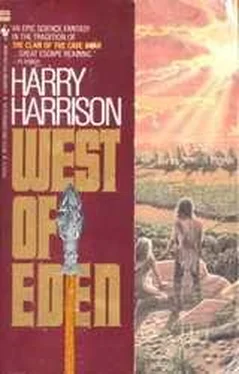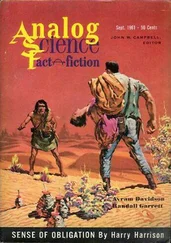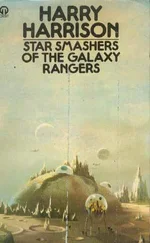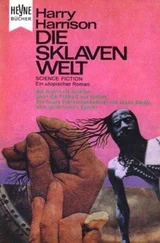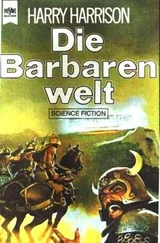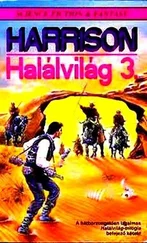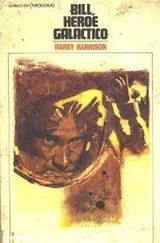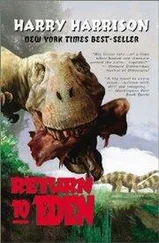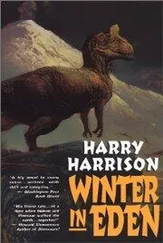“Inlènat,” she ordered. “Tell Vanalpè what we found on the beach.”
Vaintè paced down the length of the dock and back, not listening to the voices, planning the order of all the things that she must do. When the voices fell still she looked up and found them both waiting for her to speak.
“Now you understand,” she said.
“Monstrous. The creatures who did this must be found and destroyed.”
“Do you know what they possibly can be?”
“No, but I know one who does. Stallan, who works with me.”
“She is named huntress by design?”
“She is truly named. She alone has ventured into the jungle and forests that surround the city. She knows what is to be found there. Knowing this I have made modifications of the city design that I must give you details…”
“Later. Though I am now Eistaa the less pressing duties can wait until something is done about the killings. The city goes well — there are no immediate problems?”
“None that cannot wait. It goes as it should. The fever has been stopped. A few died.”
“Deeste died. Will she be missed?”
Vanalpè was silent, eyes lowered in thought. When she did speak it was obvious that she had considered her responsibilities and weighed her words carefully. “There has been bad-feeling in this city and many say that Deeste was responsible for that. I agree with that opinion. Very few will miss her.”
“Those few…?”
“Personal associates. You will quickly discover who they are.”
“I understand. Now send for Stallan and order her to attend me. While we wait show me your city.”
Vanalpè led the way between the high roots, then pushed aside a hanging curtain that shivered at her touch. It was warmer inside and they dropped their cloaks onto the pile beside the door. The cloaks extruded slow tentacles that probed the wall until they smelled the sweetness of the saptree and attached themselves to it.
They passed through the temporary structures close to the waterfront, translucent sheets fastened to skeletal, fast-growing trees. “This technique is new,” Vanalpè explained. “This is the first city to be founded in a very long time. Since the last founding the days were used wisely and great improvements have been made in design.” She was animated now, smiling as she slapped her hand against the brittle sheets. “I developed these myself. A modified insect pupa greatly enlarged. As long as the pupae are well fed in the larval stage they will produce large numbers of these sheets. They are peeled off and joined together while they are still soft. They harden with exposure. Nor is this resource wasted. See, we come to the city tree now.”
She pointed to the network of heavy roots that now formed the walls, where they wrapped and engulfed the translucent sheets. “The sheets are pure carbohydrate. They are absorbed by the tree and form a valuable energy input.”
“Excellent.” Vaintè stopped under a light that huddled next to a heater which had spread its membranous wings. She looked about in unfeigned admiration. “I cannot tell you how pleased I am. I have read all of your reports, I knew what you were accomplishing here, but seeing the solidity of the growth itself is a different matter. It is impressive impressive impressive.” She indicated a repetition and enlargement of the last word. “My first report to Entoban* will say just that.”
Vanalpè turned her head away in silence, not daring to speak. All of the work of her lifetime had been in city design and Alpèasak was the culmination of those labors. The new Eistaa’s unchecked enthusiasm was overpowering. Long moments passed before she was able to speak, pointing to the heater. “This is so new you won’t have seen it in the reports.” She stroked the heater which withdrew its fangs from the saptree for a moment, turned sightless eyes towards her and squeaked thinly. “I have been breeding these experimentally for years. I can truthfully report now that the experiments were successful. They are longer-lived and need no nourishment other than the sugars of the saptree. And feel the body temperature, it is certainly higher than any other.”
“I can only admire.”
Proudly, Vanalpè led the way again, between the curtains of entangled roots. She bent as she went through an opening, holding the roots up so Vaintè could enter, then pointed at the thick trunk that formed the rear wall. She laughed and held out her hand, palm upwards. “It lay there on my hand, that small, it seemed impossible to believe the days and days of labor needed to prepare the mutated gene chains that went into it. And no one was absolutely sure until it grew that our work had been successful. I had this area cleared of brush and trees, insect life as well, then I fertilized and watered the ground myself, pushed a hole into it with my thumb — then planted the seed. I slept beside it that night, I couldn’t leave. And next day there was the tiniest green shoot. I can’t describe how I felt. And now — it is this.”
With great pride and happiness Vanalpè slapped the thick bark of the great tree that rose there. Vaintè went and stood beside her, touching the wood herself and feeling the same joy. Her tree, her city.
“This is where I will stay. Tell everyone that this is my place.”
“This is your place. Walls will be planted to ring the place of the Eistaa. I will now go and wait for Stallan, then bring her here.”
When she had gone Vaintè sat in silence until a passing fargi looked her way, then sent her for meat. But when the fargi returned she was not alone.
“I am called Hèksei,” the newcomer said in the most formal manner. “Word has spread of your arrival, great Vaintè, and I have hurried to greet you and welcome you to your city.”
“What is your work in this city, Hèksei?” Vaintè asked, just as formally.
“I attempt to be of aid, to help others, to be loyal to the city…”
“You were a close friend of the now-dead Eistaa, Deeste?”
It was more of a statement than a question and the barb struck home. “I don’t know what you have heard. Some people are jealous of others, carry tales—”
Her words cut off as Vanalpè returned, followed by another who wore a sling across one shoulder from which there was suspended a hèsotsan. Vaintè glanced at it, then looked away, saying nothing although its presence here was forbidden by law.
“This is Stallan of whom I spoke,” Vanalpè said, her eyes slipping over Hèksei as though she did not exist.
Stallan made the sign of formal salutation, then stepped backwards towards the door.
“I am in error,” she said hoarsely, and Vaintè noticed for the first time the long scar that puckered her throat. “Unthinkingly, I wore my weapon. Not until I was aware of you looking at it did I realize that I should have left it behind.”
“Wait,” Vaintè said. “You wear it always?”
“Always. I am out of the city as much as I am in. This is a new city and there are dangers.”
“Then wear it still, Stallan, if you have need of it. Has Vanalpè told you about the beach?” Stallan signaled yes in grim silence. “Do you know what the creature could be?”
“Yes — and no.”
Vaintè ignored Hèksei’s gesture of disbelief and contempt. “Explain yourself,” she said.
“There are swamps and jungles in this new world, great forests and hills. To the west there is a large lake and beyond that the ocean again. To the north endless forests. And animals. Some very much like the ones we know in Entoban*. Some are very different. The difference is greater to the north. There I have found more and more ustuzou. I have killed some. They can be dangerous. Many of the fargi I took with me were injured, some died.”
“Dangerous!” This time Hèksei laughed out loud. “A mouse under the floor dangerous? We must send for an elinou to take care of your danger.”
Читать дальше
